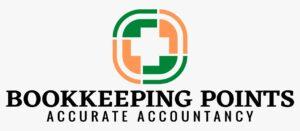Bookkeeping is a process of recording and maintaining financial transactions in a systematic and organized manner. Some key points to keep in mind when it comes to bookkeeping include:
- Accurate record keeping: It is important to keep accurate records of all financial transactions, including purchases, sales, receipts, and payments. This ensures that the financial performance of the business can be accurately reported and that the company is in compliance with tax laws and regulations.
- Use of double entry accounting: Double-entry accounting is a system in which every financial transaction is recorded in at least two accounts, a debit account and a credit account. This system helps to ensure the accuracy and integrity of the financial records.
- Use of software: Many businesses use accounting software to record and maintain their financial transactions. This can make the bookkeeping process more efficient and accurate.
- Regular review and analysis: It is important to regularly review and analyze the financial records in order to identify any potential problems or areas for improvement.
- Compliance with tax laws and regulations: Bookkeeping is an important component of tax compliance, and it is important to ensure that all financial records are accurate and up-to-date in order to file accurate tax returns.
- Separation of personal and business finances: It is important to maintain a clear separation between personal and business finances in order to avoid confusion and ensure compliance with tax laws and regulations.
- Maintaining a consistent chart of accounts: A chart of accounts is a list of all the financial accounts used by a business. It’s important to maintain a consistent chart of accounts to ensure that financial statements are accurate and comparable over time.
- Keeping a backup: It is important to keep a backup of all financial records in case of loss or damage. It’s recommended to keep a copy of all records in digital form and also store it on a cloud or external hard drive.
The freelancing bookkeeping market in the United States and the United Kingdom is a growing sector, with more and more individuals and small businesses turning to freelance bookkeepers to handle their financial records and reporting.
In the United States, the Bureau of Labor Statistics projects that employment of bookkeeping, accounting, and auditing clerks will grow 4% from 2020 to 2030. This growth is due in part to an increase in the number of small businesses, which are more likely to use freelance bookkeepers than larger companies.

In the United Kingdom, the self-employed sector has been growing rapidly in recent years, with an estimated 4.9 million people working as self-employed in 2020. This includes many freelance bookkeepers, who offer their services to small businesses and individuals who may not have the resources or need for a full-time in-house bookkeeper.
Freelance bookkeepers in both the US and the UK typically offer a range of services, including bookkeeping, financial statement preparation, payroll processing, and tax compliance. They can work remotely using accounting software, and communicate with clients through phone, email, or video conferencing.
The freelancing bookkeeping market in the US and UK is competitive, as there are many bookkeepers offering their services. Freelancers must have knowledge of bookkeeping and accounting principles, be able to use accounting software, and have good communication skills to be successful in this market.






